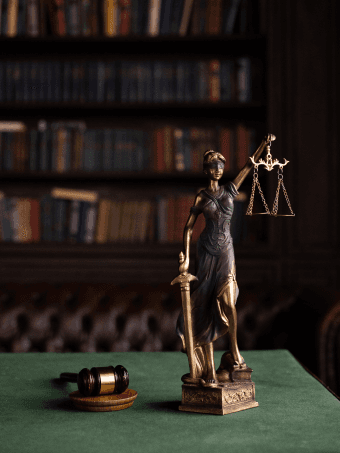Details of the case
There are a lot of companies that have the same name: Uber and Huber, Dove Soap and Dove Chocolate; United Airlines and United Van Lines. While some companies may be able to coexist with similar names, others may find it more challenging and seek to differentiate themselves. Companies may take legal action if they believe that another company's name is too similar and could cause confusion among customers or infringe on their trademark rights.
Keane Veran launched Oura Inc. in 2017, selling antimicrobial products like hats, towels, and aprons. The name OURA is short for Ouragami – Inspired by the Japanese legend of folding 1000 origami cranes in order to receive a wish, OURA sells 1000 products in order to actually grant a wish for pediatric cancer patients. The company filed for a US trademark in 2020 and received it the following year. Having built the brand over the last 5 years, the company never imagined that they would be caught in an expensive trademark dispute with a multi-billion dollar tech company.
Oura Inc. is a technology company that produces the Oura Ring, a wearable device designed to track and analyze sleep patterns, activity levels, and physiological responses. The Oura Ring uses sensors to measure variables such as heart rate, body temperature, and motion, which are then analyzed using algorithms to provide users with insights into their health and well-being. The company was founded in 2013 and is based in Oulu, Finland, with offices in Helsinki, San Francisco, and Tokyo. The Oura Ring has gained popularity among athletes, health enthusiasts, and individuals looking to improve their sleep quality and overall wellness.
As a technology company that produces and sells wearable devices and related products, Oura Health owns several trademarks related to its brand and products. Some of the trademarks owned by Oura Health include:
OURA: This is the primary trademark for the company's flagship product, the Oura Ring. The mark is registered in several countries, including the United States, the European Union, and Japan.
OURA HEALTH: This trademark is used by the company to promote its overall brand and health-focused products and services. It is also registered in several countries.
MOMENT: This is a trademark owned by Oura Health for its sleep coaching and mindfulness app, which is designed to work in conjunction with the Oura Ring.
OURA CLOUD: This trademark is used by the company for its cloud-based platform, which allows users to store and access their health data collected by the Oura Ring.
If Oura Health prevails, Oura Inc. could lose its federal trademark, which would make it difficult to continue running the business without changing its name.
Likelihood of confusion
Legal trademark disputes between companies with similar names are not uncommon, especially in cases where the names or logos are very similar or the companies operate in similar industries. Trademark disputes can arise when one company claims that another company's use of a similar name or logo could cause confusion among consumers and potentially harm their business.
Similarly, it is not uncommon to see disputes where larger companies aggressively enforce their trademarks against smaller businesses. Trademarks are important intellectual property assets that provide businesses with legal protection for their brand names, logos, and other identifying marks. Trademark infringement occurs when a third party uses a mark that is similar to a registered trademark in a way that may cause confusion among consumers.
Likelihood of confusion is a key concept in trademark law that refers to the likelihood that consumers will confuse one trademark with another. In general, a trademark may be considered infringing if it is likely to cause confusion with another trademark that is already in use for similar goods or services. In determining whether there is a likelihood of confusion, courts typically consider a variety of factors, such as the similarity of the marks, the similarity of the goods or services, the strength of the marks, the channels of trade, and the degree of care that consumers are likely to exercise when purchasing the goods or services.
Larger companies may aggressively enforce their trademarks in order to protect their brand reputation and prevent consumer confusion. However, some argue that this can be unfair to smaller businesses that may not have the same resources to fight back against legal challenges. In some cases, larger companies may use their size and resources to intimidate smaller businesses into ceasing their use of similar marks, even if they have a legitimate right to use those marks.
It is important for businesses of all sizes to conduct thorough research before adopting a new brand name or logo to ensure that they are not infringing on someone else's trademark. If a business is facing a legal challenge from a larger company, they may want to seek the advice of an experienced intellectual property attorney to help them navigate the legal process.


